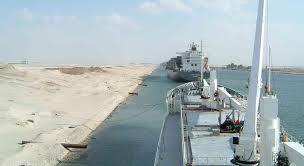The ship completed discharging at all the ports in the Persian Gulf. The next destination was my second home port, Mumbai. I was
very happy about it. On the second day at sea, the Captain received a radio message
from the head office to informing him that our Purser, Paul, would be signed off to
proceed on leave. This was very sad
news, specially for the Captain and I. Following the news, Paul became very
busy preparing the documents for handing over. In fact, he wanted to stay for one more
voyage and go home for Christmas. We estimated that the next voyage to the
Adriatic sea and back to the West Coast of India would take at least three
months. The ship would be back in Mumbai around October.
There again our plans were not God’s plans.
Paul had not collected much money as he was going to do it
during the next voyage. Whilst taking inventory of the ship’s bonded stores, where
duty free liquor and cigarettes were stored, it was found that there was a huge
shortage. He trusted and left the key with the senior steward
to do the issues as and when the officers wanted. Immediately we
understood that the three stewards had taken a lot of stuff and sold them,
possibly in the Suez Canal.
Since the Purser was responsible for
the stocks, he had to pay to cover up for the losses. It was a very
disappointing situation. I offered him some money and he took part of it and
later returned it to my father. Paul was married and had three children. Except
for what he bought for them in various countries we visited, he did not have
much to take home by way of cash. He was a big hearted man, and was always
ready to settle bills and never waited for others to pay for his drinks and
meals. Before the news, at times he used to tell me, "John, when I go home this
time I am going to have enough money to enjoy my time with the kids."
One should remember the proverb "Don’t count your
chickens before they are hatched."
Adding fuel to the fire, a considerable shortage was
discovered in items in the provisions stores. The Purser, trusted his staff beyond
reasonable limits. He very rarely went down to check what the stewards and
cooks were up to. Now, he paid the price for over-trusting his staff and
also for relaxing on the job.
I suggested to him to tell the truth to the incoming Purser
and to see what we could do. If he agreed it was well and good, otherwise we had
to do something. I gave him some more money to pay for the shortages. It was
only God’s help that was left. He simply did not have
money with him to cover the losses. We did not discuss this matter with the
Captain or any other officer. Paul was in tears but it was too late.
In the meantime, while on watch, I casually asked the standby
helmsman if he knew anything about the bonded stores. After a little pause, he told me the senior stewards drank whisky everyday and that they also bartered cigarettes in exchange
for some ornaments during transit at the Suez canal. When I asked him if he
knew anything about the provisions, he said that the Bosun paid the money to
the chief cook and got a lot of dry provisions from the officers' stores. The victualing allowance of the crew
was managed by the Bosun. I was aware that
the crew were very unhappy, as they felt that the Bosun was misusing the victualing.
I decided to tell the Captain what I heard from the helmsman. Paul was not initially happy about my decision but later changed his
mind. An inquiry was held and the Bosun, stewards and the cooks were called in.
As none of them were prepared for an interrogation, they came out with some truth.
The Captain gave them a choice, "Pay up or be ready to sign off on
arrival at Mumbai." All of them except the two assistant cooks who said they had
nothing to do with this, were ready to pay up for some of the shortages. Thereby, Paul managed to save some money and was very thankful. I still insisted
that we talk to the incoming Purser and see if something could be done at least
to cover up part of the remaining shortages, and he agreed to my
suggestion.
A day after our arrival in Mumbai, the new Purser, Patrick, a tall man of about 50 years of age, boarded
the ship. The ship was docked in the 'Indira docks.' Paul was
excited and was worried at the same time. During the handing over of documents, after dragging his feet for some time, Paul told Patrick about the problem he
had; the
shortages in the bonded store and in the dry provisions store. They both got
together and estimated the shortages. Patrick immediately agreed to assume responsibility and take over part of
the losses.
Paul left the ship in July of 1976. At the time
of leaving he was somewhat happy and he deserved all the help given to him,
as he was a good man.
Photo of the entrance to Indira Dock port of Mumbai















